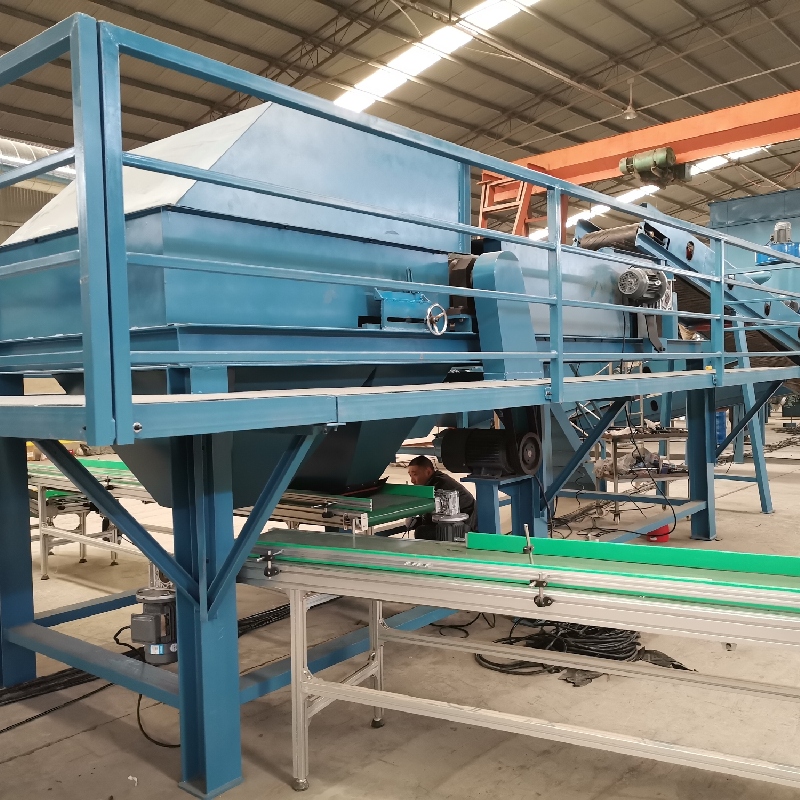

10月 . 21, 2024 17:55 Back to list
How Does a Copper Wire Granulator Work?
Copper wire granulators are specialized machines designed to efficiently process and recycle copper wire and cable. With the rising demand for raw materials and environmental awareness, these machines have become essential in recovering copper from scrap wires. Understanding how a copper wire granulator works not only highlights the technology behind it but also emphasizes its role in sustainable practices.
The Basics of Copper Wire Granulation
At its core, a copper wire granulator operates by separating copper from the insulating materials (like plastic or rubber) that encase it. The granulation process involves several key steps shredding, granulating, and separation. Each of these stages is crucial for ensuring that the maximum amount of copper is recovered while minimizing waste.
Step 1 Shredding
The first step in the copper wire granulation process is shredding. The operator feeds the scrap copper wire into a hopper, which transports the material to a shredding mechanism. This machine typically consists of sharp industrial blades that chop the wires into smaller pieces. The size reduction is an important process because smaller wires are easier to process and separate.
The shredding stage can handle various types of copper wire, including both insulated and bare copper. The size of the shredded material may vary depending on the specific model of the copper wire granulator, but it typically produces chunks ranging from a few centimeters to several millimeters.
Step 2 Granulating
Once the wires have been shredded, they move on to the granulation phase. This stage uses a granulator—essentially a second shredder—that breaks down the shredded pieces further into granules or flakes. The granulation process creates a finer product, which is vital for achieving proper separation of copper and insulation.
During granulation, the mixture is often treated with air or vibrating methods to remove heavier particles from the lighter ones. The granulator is designed to operate efficiently, with adjustable settings to accommodate different types of wire and insulation. This ensures that the optimal size is achieved for easy separation.

Step 3 Separation
The final step in the process is separation, which is crucial to ensure high-quality copper recovery. There are several methods to achieve this, with the most common being air classification and vibration systems.
Air classification uses airflow to separate materials based on their weight and density. As the granules move through an air stream, the lighter plastic or rubber insulation is blown away, leaving behind the heavier copper granules.
Vibration systems employ vibrating screens that allow different sized particles to pass through based on their weight and size. This dual approach maximizes the recovery rate of copper while minimizing the amount of waste produced.
Efficiency and Benefits
The efficiency of a copper wire granulator is one of its key selling points. Advanced models can process hundreds of kilograms of scrap wire per hour, dramatically increasing recovery time compared to manual methods. Furthermore, the granulator minimizes manual labor, enhancing workplace safety and reducing operational costs.
Additionally, using a copper wire granulator is environmentally friendly. It reduces the need for mining new copper, thus conserving natural resources and decreasing carbon footprints. Recycled copper can be reused in various applications, making it a preferred choice for many industries.
Conclusion
In conclusion, copper wire granulators serve a vital role in the recycling industry by providing an efficient, effective way to recover copper from scrap materials. The process involves shredding, granulating, and separating, which ensures the highest yield of copper with minimal waste. As technological advancements continue to improve granulator designs, these machines will foster sustainable practices in waste management and resource recovery. In an increasingly eco-conscious world, the role of copper wire granulators will only become more significant—transforming what was once seen as trash into valuable materials once again.
Latest news
Troubleshooting Common Eddy Separator Problems
NewsJul.04,2025
The Role of Metal Recycling Plants in Circular Economy
NewsJul.04,2025
The Impact of Recycling Line Pickers on Waste Management Costs
NewsJul.04,2025
Safety Features Every Metal Shredder Should Have
NewsJul.04,2025
How Industrial Shredders Improve Waste Management Systems
NewsJul.04,2025
How Cable Granulators Contribute to Sustainable Recycling
NewsJul.04,2025